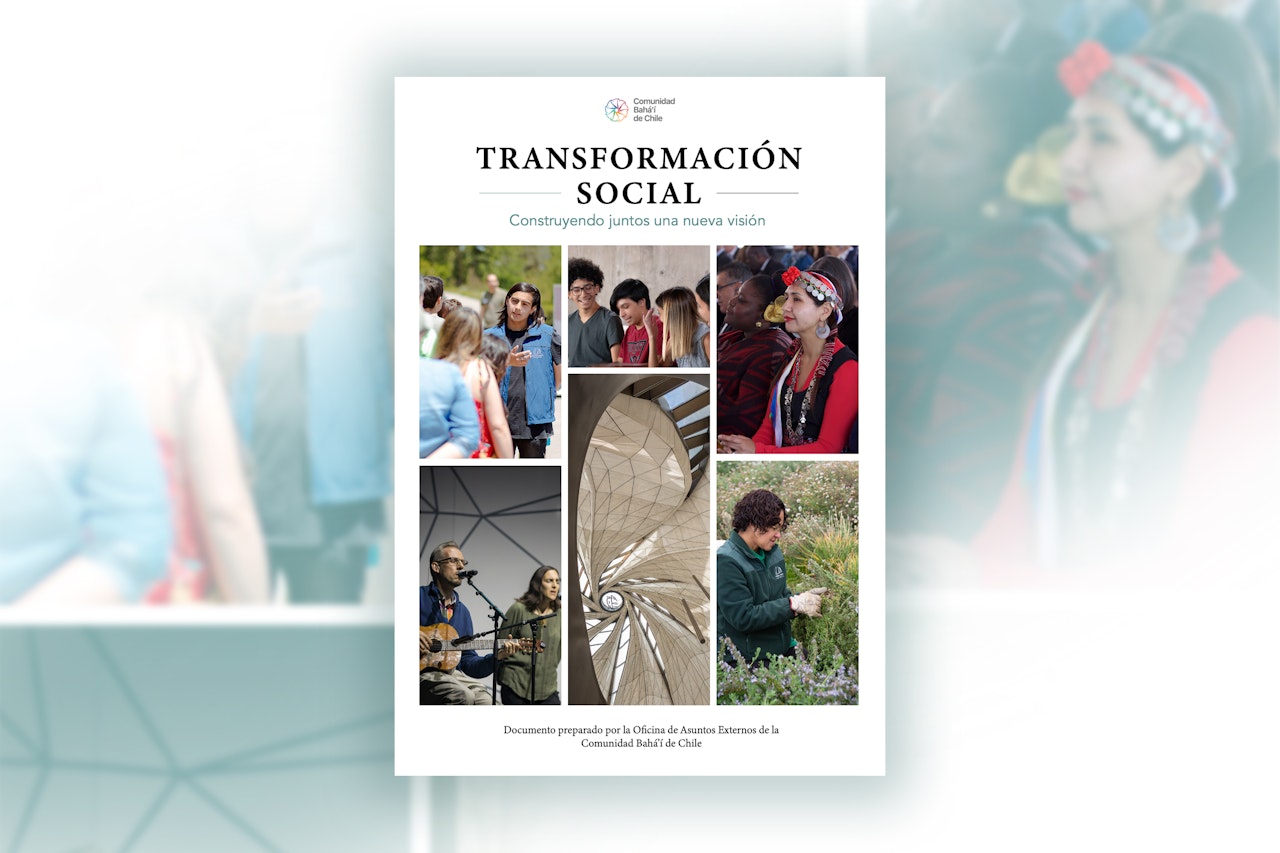Chile
New publication explores paths to social transformation
A publication by the Bahá’ís of Chile examines how reconceptualizing human identity based on the oneness of humanity is essential for fundamental societal change.

A publication by the Bahá’ís of Chile examines how reconceptualizing human identity based on the oneness of humanity is essential for fundamental societal change.

SANTIAGO, Chile — How can societies move beyond superficial approaches to change and begin to foster profound social transformation? This question has been at the center of a series of long-standing conversations among diverse social actors in Chile, culminating in a new publication released by the Bahá’í Office of External Affairs of that country titled Social Transformation: Building a New Vision Together.
The publication synthesizes, through the lens of Bahá’í principles and approaches to social development, the ideas that have emerged from these discussions over the years, which have been held by the Office of External Affairs and brought together academics, civil society organizations, government representatives, and community leaders.
Speaking at the publication’s launch at the Bahá’í House of Worship in Santiago, Allan Aravena, member of the Office of External Affairs highlighted one of the key insights from the series of discussions: “The participants have recognized that achieving meaningful social transformation requires reconstructing the social fabric based on a deeper understanding of human identity, one that recognizes the fundamental oneness of humanity.”
The discussions have drawn inspiration from Bahá’í community-building efforts throughout the country, which have offered perspectives into what becomes possible when relationships between individuals, communities, and institutions are based on principles such as the equality of women and men, justice, and universal participation.
“Through these endeavors,” Mr. Aravena explained, “where perspectives of young and old, women and men, and people of all backgrounds are valued, local communities are learning to build trust, communicate effectively, and resolve issues collectively.”
A central focus of the publication is its examination of human identity and its role in social transformation. The text explores how prevailing materialistic frameworks have led to a limited conception of human nature, one that often reduces human beings to mere economic actors driven by competition and self-interest.
“The construction of identity takes on a fundamental role in shaping both conceptual frameworks and culture,” explained Daniel Duhart, a member of the Board of Counsellors in the Americas and a participant in the discussion forums. “When we limit our understanding of who we are to purely material considerations, we unknowingly perpetuate systems that cannot adequately address the injustices and suffering we see in the world.”
The publication states that this limited conception of human identity manifests in various social structures, from education systems focused primarily on material achievement to a media landscape that often reduces human experience to superficial metrics. It argues that true social transformation requires expanding our understanding of human nature to encompass its spiritual dimension.
Carolina Rudnick, president of NGO Fundación Libera, reflected on this expanded vision of human nature: “For me, social cohesion is about weaving a social fabric by building community. It involves individual development… and at the same time we cannot grow except in connection with others and our environment.”
“If we wish to build a more just society but employ means contrary to unity, it becomes an obstacle to the process,” Dr. Duhart continued. “This generates a paralysis that ultimately creates social frustration and apathy, as high ideals do not translate into reality.”
The publication examines how rethinking certain fundamental ideas—such as power, education, and human nature—could open new possibilities for social progress. “Much of our attention is drawn to power as domination,” noted Felipe Duhart, a member of Chile’s Bahá’í National Spiritual Assembly.
“But there are other dimensions of power that are just as real, if not more powerful: the power of truth, the power of knowledge, the power of unity, the power of selfless actions, and the power of justice,” he said.
The publication represents part of a broader effort by the Office to contribute to prevalent discourses about social transformation in Chile. The series of forums will continue in the coming year, with future publications planned to capture how thinking evolves over time.